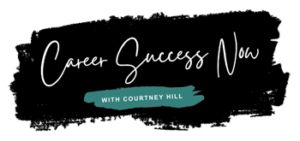I. Definition of an Executive Career Coach
An executive career coach is a professional mentor who specializes in guiding senior executives, leaders, and aspiring professionals towards achieving their career goals. Unlike traditional career coaches who may focus broadly on job search strategies, resume building, and interview preparation, executive career coaches hone in on the unique challenges and opportunities faced by individuals in high-level positions. They provide personalized advice, strategic planning, and skill development tailored to enhance leadership capabilities, improve performance, and facilitate career advancement.
- Target Audience
The primary audience for executive career coaching includes:
- Senior Executives: These individuals hold high-ranking positions within their organizations and are responsible for significant decision-making and leadership tasks.
- Aspiring Leaders: Professionals aiming to climb the corporate ladder and secure executive roles benefit from coaching to develop the necessary skills and strategies for success.
- Purpose of Hiring an Executive Career Coach
The decision to engage an executive career coach is driven by various objectives, including:
- Enhancing Leadership Skills: To become more effective in their roles, executives often seek to refine their leadership abilities, including decision-making, team management, and strategic thinking.
- Achieving Career Goals: Whether aiming for a promotion, transitioning to a new industry, or expanding their influence within the company, executives use coaching to define and reach their professional aspirations.

II. Roles and Responsibilities of an Executive Career Coach
- Assessment and Evaluation
Executive career coaching begins with a thorough assessment of the client’s current capabilities and potential areas for growth.
- Personality and Leadership Style Assessments: Tools such as the Myers-Briggs Type Indicator (MBTI), DiSC profile, and StrengthsFinder help identify the client’s natural tendencies and how they impact their leadership style.
- 360-degree Feedback: Gathering input from colleagues, subordinates, and supervisors provides a holistic view of the client’s performance and areas needing improvement.
- Goal Setting and Strategic Planning
An essential aspect of coaching is setting clear, actionable goals.
- Short-term and Long-term Career Goals: Coaches help clients articulate their immediate objectives, such as improving a specific skill or managing a current project, as well as their broader career ambitions.
- Action Plans and Milestones: Once goals are set, coaches assist in creating detailed plans that outline the steps needed to achieve these goals, including setting milestones to track progress.
- Skill Development
Executive career coaches focus on enhancing specific skills critical for leadership success.
- Leadership and Management Skills: This includes developing strategic thinking, decision-making, and the ability to inspire and guide teams.
- Communication and Negotiation Skills: Effective communication is vital for leadership. Coaches work on improving verbal and non-verbal communication, public speaking, and negotiation techniques.
- Personal Branding
Building and maintaining a strong professional image is crucial for executives.
- Building a Professional Image: Coaches help clients craft a personal brand that reflects their values, strengths, and unique contributions.
- Networking Strategies: Developing and maintaining a robust professional network is another focus area, with coaches providing strategies for effective networking.
- Performance Improvement
Continuous improvement is a key component of executive coaching.
- Identifying and Addressing Weaknesses: Coaches work with clients to recognize and overcome their weaknesses through targeted strategies and training.
- Enhancing Strengths: Leveraging strengths to achieve greater success and impact within the organization.
III. Benefits of Working with an Executive Career Coach
- Personalized Attention
Executive career coaching offers a high level of personalized support.
- Tailored Coaching Sessions: Sessions are customized to address the specific needs and goals of the client.
- One-on-one Mentorship: Clients receive individualized guidance and feedback from their coach, fostering a deep and impactful learning experience.
- Increased Self-awareness
Coaching helps executives gain a deeper understanding of themselves.
- Understanding Personal and Professional Strengths: Through assessments and feedback, clients learn to identify and utilize their strengths effectively.
- Recognizing Areas for Improvement: Self-awareness is key to recognizing areas where further development is needed.
- Enhanced Leadership Capabilities
Working with a coach leads to significant improvements in leadership skills.
- Improved Decision-making Skills: Clients learn to make more informed and strategic decisions.
- Better Team Management: Coaching focuses on enhancing the ability to lead and inspire teams, improving overall team performance.
- Career Advancement
Coaching provides the tools and strategies needed for career progression.
- Preparing for Higher-level Positions: Coaches assist clients in developing the skills and strategies required for executive roles.
- Achieving Professional Goals: Clients receive support in navigating their career paths and achieving their desired outcomes.
- Work-life Balance
Maintaining a healthy balance between professional and personal life is crucial for sustained success.
- Managing Stress and Time Effectively: Coaches provide techniques for managing stress and prioritizing tasks.
- Ensuring Personal Well-being: Emphasis on maintaining personal health and well-being to sustain long-term success.
IV. Process of Executive Career Coaching
- Initial Consultation
The coaching process typically begins with an initial consultation.
- Understanding the Client’s Needs: This session involves discussing the client’s background, current situation, and goals.
- Setting Expectations and Goals: Clear expectations and specific goals are established to guide the coaching process.
- Development of a Coaching Plan
A customized coaching plan is created based on the initial consultation.
- Customized Coaching Strategies: Tailored strategies are developed to address the client’s unique needs and objectives.
- Timeline and Milestones: A timeline is set, with specific milestones to track progress.
- Regular Coaching Sessions
Regular sessions form the core of the coaching process.
- Frequency and Format of Sessions: Sessions are scheduled at regular intervals, with the format (in-person, virtual, etc.) agreed upon.
- Topics Covered in Sessions: Each session focuses on specific topics relevant to the client’s goals and progress.
- Continuous Feedback and Adjustments
Ongoing feedback and adjustments are integral to the coaching process.
- Monitoring Progress: Regular assessments ensure that the client is on track to achieve their goals.
- Adapting the Plan as Needed: The coaching plan is adjusted based on feedback and evolving needs.
V. Choosing the Right Executive Career Coach
- Qualifications and Experience
Selecting the right coach involves considering their qualifications and experience.
- Relevant Certifications: Look for coaches with certifications from reputable organizations such as the International Coach Federation (ICF).
- Professional Background: A coach with experience in the client’s industry or similar roles can provide valuable insights.
- Coaching Style and Approach
The coach’s style and approach should align with the client’s preferences and needs.
- Compatibility with the Client’s Needs: The coach should understand and be able to address the specific challenges faced by the client.
- Preferred Methodologies: Different coaches use various methodologies, such as cognitive-behavioral techniques or experiential learning, and the client should choose one that resonates with them.
- Testimonials and References
Client testimonials and references provide insight into the coach’s effectiveness.
- Client Success Stories: Positive feedback from previous clients indicates the coach’s ability to deliver results.
- Professional Endorsements: Recommendations from respected professionals in the industry add credibility.
- Cost and Investment
Understanding the financial aspect of coaching is essential.
- Understanding the Fee Structure: Coaches may charge by the hour, per session, or offer package deals.
- Evaluating the Return on Investment: Consider the potential career benefits and long-term value of coaching when evaluating the cost.
- Interviewing Potential Coaches
Before committing to a coach, it’s essential to conduct thorough interviews.
- Preliminary Interviews: Schedule initial meetings to gauge the coach’s approach, style, and compatibility with your needs.
- Asking the Right Questions: Inquire about their experience, success stories, coaching philosophy, and how they handle specific challenges.
- Trial Sessions: Some coaches offer a complimentary session to provide a feel of their coaching style and effectiveness.
- Evaluating the Fit
Choosing the right coach is as much about the emotional and relational fit as it is about credentials.
- Building Trust: A good coach-client relationship is built on mutual trust and respect.
- Comfort Level: Ensure you feel comfortable discussing sensitive and personal topics with the coach.
- Chemistry: The presence of positive chemistry can enhance the coaching experience and outcomes.
VI. Case Studies and Success Stories
- Real-life Examples
Examining real-life examples illustrates the impact of executive coaching.
- Executive Transformations: Stories of executives who have significantly improved their performance and achieved their goals through coaching.
- Overcoming Career Challenges: Examples of clients who have navigated and overcome major career obstacles with the help of coaching.
- Lessons Learned
Analyzing these case studies reveals valuable lessons.
- Strategies that Worked: Effective strategies and approaches that led to success.
- Common Pitfalls and How to Avoid Them: Understanding common mistakes and how to avoid them can guide future clients.
- Transformational Stories from Various Industries
Illustrating the impact of executive coaching through diverse industry examples.
- Technology Sector: A CTO leveraging coaching to foster innovation and lead through rapid changes.
- Finance Sector: A CFO using coaching to enhance strategic financial management and stakeholder engagement.
- Healthcare Sector: A hospital administrator improving patient care delivery and team coordination through coaching.
- Overcoming Specific Challenges
Detailed examples of executives who faced and overcame distinct challenges.
- Crisis Management: A CEO navigating a corporate crisis with the help of strategic coaching.
- Cultural Transformation: An executive leading a company through a major cultural shift and change management.
- Global Expansion: An executive managing the complexities of expanding operations internationally with coaching support.
VII. Conclusion
- Recap of the Importance of Executive Career Coaching
Executive career coaching plays a crucial role in professional development, offering personalized guidance, skill enhancement, and strategic planning to help executives achieve their goals.
- Encouragement to Seek Coaching for Career Advancement
Given the significant benefits, executives and aspiring leaders are encouraged to consider engaging an executive career coach to navigate their career paths effectively and reach their full potential.
- Final Thoughts on the Impact of Coaching on Professional Growth
The transformative impact of coaching on personal and professional growth cannot be overstated. Through tailored support and strategic guidance, executive career coaching empowers individuals to excel in their roles and achieve lasting success.
- Call to Action
Encouraging readers to take proactive steps towards engaging an executive career coach.
- Assess Your Needs: Reflect on your current career stage and identify areas where coaching can help.
- Research Potential Coaches: Utilize resources and networks to find reputable executive coaches.
- Start the Journey: Initiate contact, schedule consultations, and take the first step towards professional growth.
- Final Reflections
Summarizing the lasting impact and value of executive career coaching.
- Empowerment: Coaching empowers executives to realize their potential and drive their careers forward.
- Sustainable Growth: Through continuous learning and development, coaching fosters sustainable career advancement and personal satisfaction.
VIII. References and Resources
- Books and Articles on Executive Coaching
- “The Coaching Habit: Say Less, Ask More & Change the Way You Lead Forever” by Michael Bungay Stanier
- “Trillion Dollar Coach: The Leadership Playbook of Silicon Valley’s Bill Campbell” by Eric Schmidt, Jonathan Rosenberg, and Alan Eagle
- Professional Organizations and Associations
- International Coach Federation (ICF)
- Center for Executive Coaching
- Online Courses and Workshops
- Coursera: Leadership and Management Courses
- LinkedIn Learning: Executive Coaching Courses
The role of an executive career coach is multifaceted, focusing on developing leadership skills, achieving career goals, and ensuring personal well-being. By understanding the process, benefits, and how to choose the right


